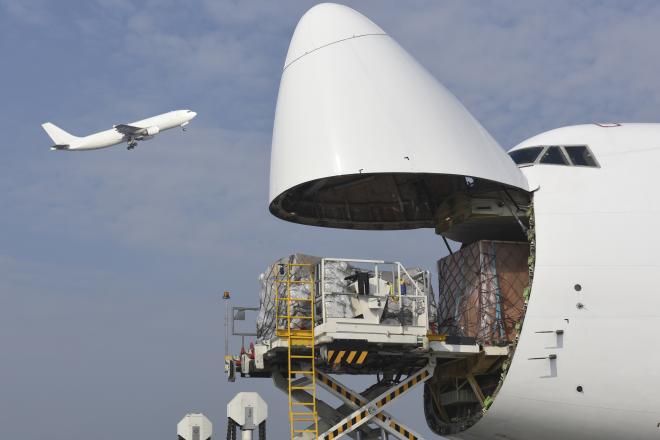
The International Air Transport Association (IATA) urged governments to start planning with the air transport industry to ensure smooth delivery of coronavirus disease (COVID-19) vaccines once they become available for distribution.
In a statement, the association warned of potentially severe capacity constraints in transporting vaccines by air. “The potential size of the delivery is enormous. Just providing a single dose to 7.8 billion people would fill 8,000 747 cargo aircraft. Land transport will help, especially in developed economies with local manufacturing capacity. But vaccines cannot be delivered globally without the significant use air cargo,” it said.
Preparedness
“Safely delivering COVID-19 vaccines will be the mission of the century for the global air cargo industry. But it won’t happen without careful advance planning. And the time for that is now. We urge governments to take the lead in facilitating cooperation across the logistics chain so that the facilities, security arrangements and border processes are ready for the mammoth and complex task ahead,” said IATA’s Director General and CEO, Alexandre de Juniac.
IATA said planning should take into account the facilities needed, security, border processes, and capacity of the airline industry.
Transporting the vaccines, for instance, would require meeting international regulatory requirements and using equipment with controlled temperatures to ensure the quality of the product.
“Highly valuable commodities”
Security should also be a paramount concern because the vaccines will be “highly valuable commodities,” IATA said. “Arrangements must be in place to ensure that shipments remain secure from tampering and theft. Processes are in place to keep cargo shipments secure, but the potential volume of vaccine shipments will need early planning to ensure that they are scalable.”
As such, working effectively with health and customs authorities will be essential to ensure timely regulatory approvals, adequate security measures, appropriate handling and customs clearance, it added. This could be a particular challenge given that, as part of COVID-19 prevention measures, many governments have put in place measures that increase processing times.
On top of the transport preparations and coordination needed, governments must also consider the current diminished cargo capacity of the global air transport industry, the statement warned. With the severe downturn in passenger traffic, airlines have downsized networks and put many aircraft into remote long-term storage. The global route network has been reduced dramatically from the pre-COVID days, IATA said.
“Even if we assume that half the needed vaccines can be transported by land, the air cargo industry will still face its largest single transport challenge ever. In planning their vaccine programs, particularly in the developing world, governments must take very careful consideration of the limited air cargo capacity that is available at the moment. If borders remain closed, travel curtailed, fleets grounded and employees furloughed, the capacity to deliver life-saving vaccines will be very much compromised,” said IATA’s de Juniac.

